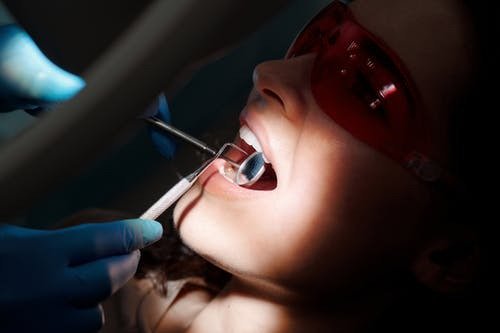
How Can You Prevent Gum Disease With Regular Dental Cleaning?
Gum disease, a common yet preventable condition, affects a vast number of individuals. Regular dental cleaning, a cornerstone of oral hygiene practice, plays an essential role in combating this issue. Emphasizing the importance of routine teeth cleaning, this article will delve into practical steps to maintain healthy gums and prevent gum disease.
Gum Disease
Gum disease, also known as periodontal disease, is an inflammation of the gums that can progress to affect the bone that surrounds and supports your teeth. It is typically caused by bacteria in plaque, a sticky, colorless film that forms on your teeth. If not removed through daily brushing and flossing, plaque can build up, and the bacteria can infect not only your gums and teeth but, eventually, the gum tissue and bone that support the teeth. This can lead to teeth falling out or needing to be removed by a dentist.
Gum Disease Prevention
Proactive Dental Care: Incorporating simple yet effective habits such as brushing twice a day, flossing daily, and using an antibacterial mouthwash can significantly lower the risk of developing gum disease. Regular Check-ups: Scheduling dental check-ups twice a year can help catch early signs of gum disease, making it easier to treat. Healthy Diet: Consuming a balanced diet rich in vitamins and minerals supports overall oral health, contributing to stronger gums and teeth.
Professional Dental Cleanings
Professional dental cleanings are not just about keeping your smile bright; they can have a significant impact on your general health. Insufficient oral hygiene has been linked to several serious illnesses. Associated medical and dental issues include bone loss, cardiovascular disease, strokes, cancers, and many other problems. Brushing and flossing at home is essential, but to ensure teeth are clean and healthy, you should schedule regular check-ups with your dentist and annual dental cleanings with your dental hygienist.
Hygienist’s Role
Scaling and Polishing: Dental hygienists meticulously remove plaque buildup and tartar from above and below the gum line, followed by polishing to smooth tooth surfaces. Personalized Advice: They provide tailored guidance on improving your dental hygiene routine, including the proper use of dental tools. Oral Health Assessment: Hygienists assess your mouth for any signs of dental issues, ensuring early intervention and treatment if necessary.
Dental Hygiene at Home
Aside from professional cleanings, maintaining a good dental hygiene routine at home is crucial. Here are three important components of an effective at-home oral hygiene regimen:
-
Brushing Techniques: Brush for two minutes twice a day, using fluoride toothpaste to strengthen tooth enamel and avoid tooth decay prevention.
-
Flossing Techniques: Clean between your teeth daily with floss or an interdental cleaner to remove debris that your toothbrush can’t reach.
-
Diet Considerations: Be mindful of food and dental health by limiting sugary snacks, which can contribute to plaque accumulation and gum disease.
Getting a beautiful smile goes hand in hand with maintaining healthy teeth and gums. Dentists can provide personalized esthetic dentistry plans that address both cosmetic and health aspects. From teeth whitening procedures to Invisalign treatment, these plans ensure that your dental hygiene contributes to both a radiant smile and strong oral health.
Gum Disease Risk Factors
Identifying and understanding the risk factors associated with gum disease is the cornerstone of prevention. Some are within your control, while others may require that you seek additional care or intervention from dental professionals:
-
Smoking: Tobacco use is significantly associated with the development of gum disease. Quitting smoking can help reduce this risk.
-
Genetics: Some individuals are more susceptible to gum disease due to their genetic makeup and may need more frequent dental attention.
-
Medications: Certain drugs can affect oral health by reducing saliva flow, which has a protective effect on teeth and gums.
Experienced dental professionals, such as a trusted emergency dentist near Owings Mills, can offer immediate assistance during dental emergencies and advise on managing risk factors related to your unique situation.
Advanced Dental Treatments
When preventive measures and basic dental care are not enough, or if you already have signs of gum disease, your dentist may recommend more advanced treatments. These can include:
-
Deep Cleaning: Also known as scaling and root planing, this procedure involves removing tartar from above and below the gum line and smoothing out rough spots on tooth root surfaces.
-
Laser Treatments: Lasers can be used to remove tartar and bacteria more precisely and less invasively than traditional methods.
-
Gum Grafts: For severe cases where gum tissue has been eroded, a gum graft may be necessary to protect tooth roots from decay and sensitivity.
In addition to these interventions, the concept of holistic dental approaches in Pikesville encompasses a broad spectrum of care that focuses on understanding the connection between oral health and overall wellness, tailoring treatments to individual needs.
Insurance and Savings
Finding ways to manage the financial aspect of dental care is important for many individuals. Consider the following:
-
Dental Insurance: Many dental insurance plans cover preventive services like check-ups and cleanings at 100%, making it easier to maintain a healthy mouth without financial stress.
-
Flexible Spending Accounts: Utilize pretax dollars saved in a flexible spending account to pay for dental treatments not covered by insurance.
-
Payment Plans: Some dental offices offer payment plans or programs to help spread out the cost of treatments over time.
Children’s Dental Care
Special attention is needed when it comes to pediatric dental care. Establishing good oral health habits early in life helps prevent gum disease and fosters a lifetime of healthy smiles. A pediatric dentist can provide specialized care tailored to the unique needs of children, including fluoride treatments, dental sealants, and guidance for parents on how to maintain their child’s dental hygiene.
Early Education
Regular Appointments: Bring your child to the dentist for regular check-ups as early as their first birthday. Fun Learning: Use engaging activities to teach them about the importance of brushing and flossing. Positive Reinforcement: Reward good dental habits with praise, laying the foundation for a lifetime of oral health.
Seniors’ Dental Health
As we age, oral care becomes even more critical. Seniors are more prone to dental conditions such as dry mouth, root decay, and gum disease. Consistent teeth cleaning, attending regular dentist appointments, and exploring options like dentures or dental implants become imperative for preserving oral health in later years.
Age-Related Considerations
Dental Wear: Recognize that years of use can wear down teeth, making diligent care necessary to maintain their function. Medication Impact: Be vigilant of how medications may affect oral health and discuss any concerns with your dentist. Gum Care: Pay special attention to gum health to prevent age-related periodontal issues.
To End
Preventing gum disease is a multifaceted endeavor that encompasses professional dental care, personalized hygiene routines, and lifestyle adjustments. From proactive home dental hygiene to understanding and utilizing regular dentist appointments, the steps outlined can lead to lasting gum health and a vibrant smile.
Whether you’re considering bridges and crowns or are concerned about root canal therapy, always remember that prevention is key. Wear it as a badge of honor and a testament to your commitment to your health as you smile confidently, knowing your gums are as robust as they are resilient.



